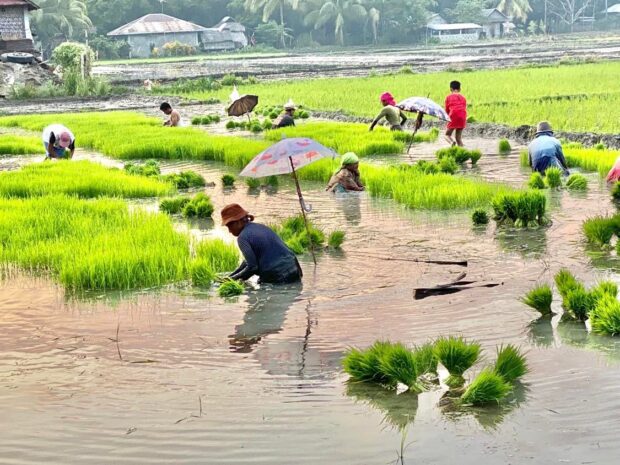
DIFFERENT SITUATION The once-abundant rice fields in Negros Occidental, like this one in Cauayan town last year, are now suffering from the dry spell. —RONNIE BALDONADO
BACOLOD CITY—The Negros Occidental provincial government is preparing to give financial assistance to farmers who will be affected by the long dry spell caused by the El Niño phenomenon that may last until May.
Gov. Eugenio Jose Lacson said he directed provincial agriculturist Dina Genzola to come up with the list of affected farmers who would get cash aid from the province.
“They are now doing the survey and hopefully we will have an idea how many are they. We are contemplating on giving them financial assistance that they can use for their next crop,” he said.
Negros Occidental, including Bacolod City, may experience a drought starting the end of February up to May, said the Philippine Atmospheric, Geophysical and Astronomical Services Administration (Pagasa) in the Visayas.
The provincial government, he said, may be able to give only up to P2,500 per affected farmer.
“I don’t think (the amount) is really enough but I hope somehow that can mitigate their financial needs,” Lacson said.
Most of the farmers affected are those who depend on rain for their crops.
“In fact, they were not insured last year because they were already told not to plant this crop year because of the expected El Niño,” he said.
Costly drought
The dry spell has so far damaged P12,811,097 in rice crops and affected 374 farmers in seven local governments in Negros Occidental, namely, the towns of Isabela, Binalbagan, Moises Padilla, Cauayan and Hinoba-an and Sipalay City.
Lacson said the provincial government is also considering cloud seeding to induce rains over affected agricultural lands.
According to Pagasa, drought happens during three consecutive months of way below normal rainfall condition or 60 percent reduction from average rainfall.
A drought could adversely affect different climate-sensitive sectors, including water resources, agriculture, energy, health and public safety.
READ: In Negros Occidental, dry spell damage hits P12.8M
The bulk of the rice produced by Negros Occidental is on irrigated land.
“For as long as our irrigated land can produce the same volume of rice, even if there will be a drop in the overall rice production, I’d like to think that we will be okay because there’s always importation also,” Lacson said.
“The national government can always turn to importation of rice,” he added. INQ